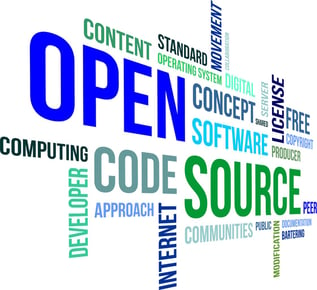Legal Update: Northern District of California Upholds Open Source Software License
Software developer’s failure to pay for license fee or open source its software results in court ruling paving the way for future lawsuits involving breach of open source licenses. On April 25, 2017, in Artifex Software, Inc. v. Hancom, Inc., the Northern District of California issued a ruling upholding the rights of the makers of open source software to sue for alleged breach of open source licenses. At issue in this case is the so-called GNU General Public License version 3 (the “GPLv3”), which allows for creators of software to offer the source code of their software to others under a license, which places restrictions on the licensee. Notably, the GPLv3, which is one of the more commonly used open source licenses, requires that, if the licensee creates new software that is based on the licensed software, and the licensee provides copies of the new software to third parties, then the licensee must provide copies of the source code for their new software to those third parties.
On April 25, 2017, in Artifex Software, Inc. v. Hancom, Inc., the Northern District of California issued a ruling upholding the rights of the makers of open source software to sue for alleged breach of open source licenses. At issue in this case is the so-called GNU General Public License version 3 (the “GPLv3”), which allows for creators of software to offer the source code of their software to others under a license, which places restrictions on the licensee. Notably, the GPLv3, which is one of the more commonly used open source licenses, requires that, if the licensee creates new software that is based on the licensed software, and the licensee provides copies of the new software to third parties, then the licensee must provide copies of the source code for their new software to those third parties.
In other words, the GPLv3 is designed to allow software creators to release valuable source code under the condition that anyone who distributes the software must also make available their revisions to the source code. Thus, the GPLv3 attempts to make the software source code “open.”
In the case at hand, Hancom allegedly incorporated Artifex’s source code for PDF creation software, named Ghostscript, into Hancom’s Korean word processing software, named Hangul (after the Korean alphabet), which Hancom released commercially. Hancom, however, allegedly failed to distribute Hangul’s source code to its customers. Artifex sued Hancom in the Northern District of California for Hancom’s alleged breach of the GPLv3 license and for copyright infringement. In response, prior to answering the lawsuit, Hancom filed a motion to dismiss.
In denying Hancom’s motion, in one of the first court decisions to address the issue, the Northern District of California upheld the right of an open source licensor to sue for breach of contract, reasoning that Artifex properly alleged that Hancom consented to a contract, the GPLv3, when Hancom used Ghostscript and publicly represented that Hancom used Ghostscript under the GPLv3 license. The Court also refused to rule out the remedy of specific performance, which could require Hancom to release Hangul’s source code to its customers – likely a disastrous result for Hancom.
Reading between the lines, it appears as though Hancom may have misunderstood the intent of the GPLv3. The restrictive covenants of the GPLv3 apply to works that are “based” on original work released under the GPLv3. Given that Hangul is a word processor, and Ghostscript is a library for creating PDF documents, Hancom may have thought that Hangul was not “based” on Ghostscript. Most open source companies, however, take the position that incorporation of a software library into another work that uses the library creates a derivative work “based on” the library. Moreover, there are other open source licenses, such as the GNU Lesser General Public License (LGPL) which address use of open source libraries in non open source software products (requiring modifications of open source libraries to be released, but not requiring release of source code of software that uses LGPL-licensed libraries). So, if this lawsuit proceeds, the Northern District of California may end up interpreting the scope of what is, and what is not, covered under the GPLv3, potentially altering the scope of rights in open source software for many vendors of open source software.
IS MY BUSINESS IMPACTED?
Because of the pervasiveness of open source software, companies developing software applications may want to examine whether they rely on any open source software products and consider the impact that open source software licenses may have on their business operations.
By Matt Miller, registered patent attorney.
To review the court's ruling on the subject, please click here.
For additional resources, check out:


